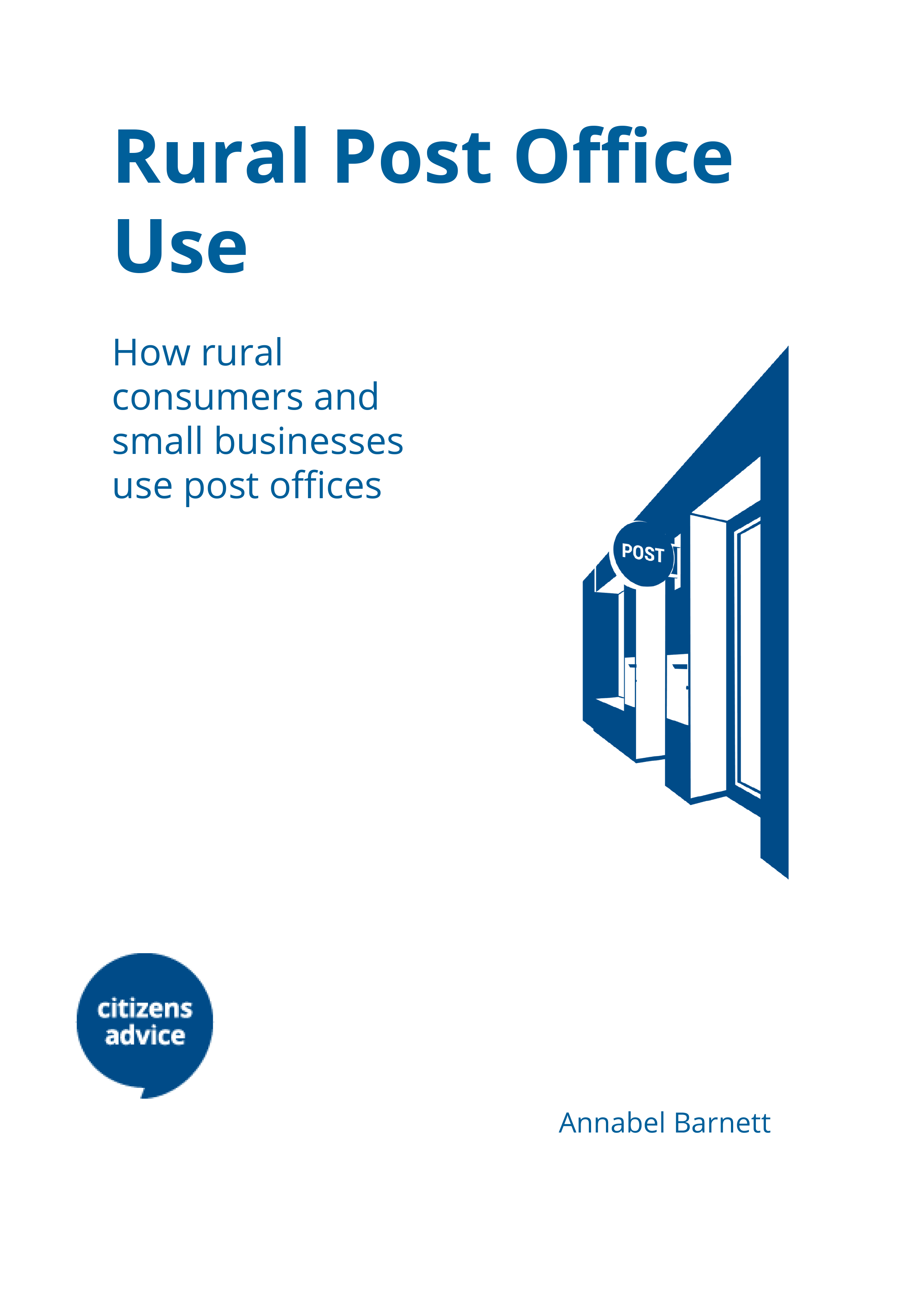Rural Post Office Use
Rural Post Office Use [ 0.7 mb]
Post offices have always been particularly important for rural communities. But in the context of declining mail use and dramatic growth in digital communications, what role do they play today? And do people in rural areas use post offices differently to people based in urban areas?  This briefing note draws on a survey of over 800 rural residents and over 250 small businesses. Although almost all rural residents and businesses use post offices, people in rural areas are visiting post offices less frequently than they did a decade ago (31% visit at least once a week, compared to 56% in 2005). Our research shows:
This briefing note draws on a survey of over 800 rural residents and over 250 small businesses. Although almost all rural residents and businesses use post offices, people in rural areas are visiting post offices less frequently than they did a decade ago (31% visit at least once a week, compared to 56% in 2005). Our research shows:
-
Rural consumers still use post offices significantly more often than urban consumers and they are more likely to use many of the services offered. Rural residents make greater use of mail services including buying stamps and sending parcels, for example. Post offices in rural areas are also used much more for cash withdrawals (24% of rural consumers, 19% in urban areas).
-
Post offices remain embedded in rural life, providing a range of community and retail services. These include offering local information, informal support and a place for meeting fellow residents. 7 in 10 rural consumers buy essential items like groceries and food at post offices.
-
Rural small businesses rely on post offices more than their urban counterparts. Rural businesses make more use of postal and banking services in particular. And the current breadth of the post office network helps their bottom line: 71% of rural small businesses say that without their local post office, their costs for accessing services would rise.
- The more rural a community, the more important its post office. 6 in 10 remote rural residents describe the Post Office as ‘very’ or ‘extremely’ important to them. They withdraw cash most frequently, are more likely to buy retail goods and make most use of community services.
The Post Office has a requirement to provide branches in all parts of the UK in line with national access criteria set by government, and to date the government has protected rural post offices. Our research confirms the particular importance of post offices to rural consumers and businesses. It is vital that the government and Post Office Ltd continue to maintain the number of rural post offices and ensure they retain their wide range of services.

